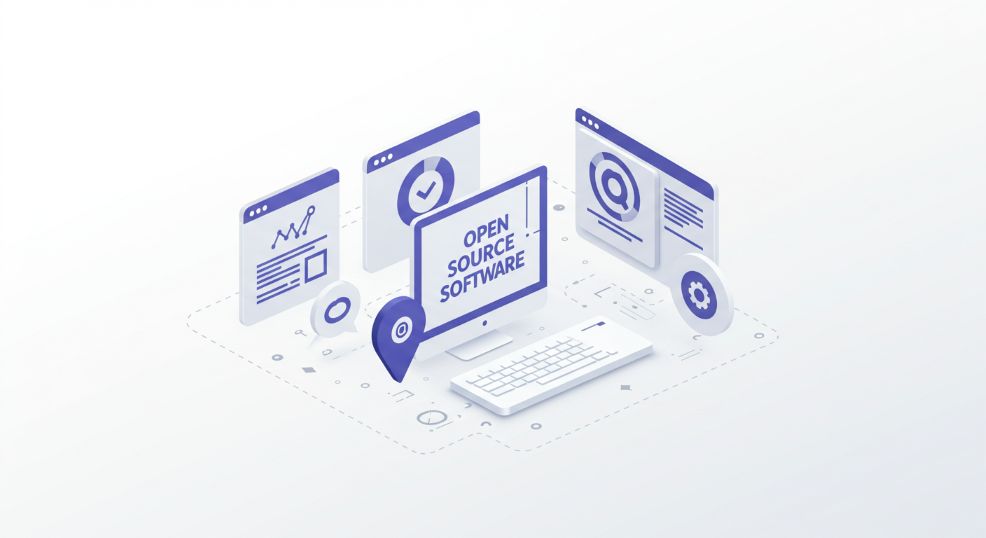Location

Introduction
IT Support Services for Small Businesses play a pivotal role in ensuring the seamless operation of daily activities in today’s technology-driven landscape. Small businesses often rely on technology to manage operations, interact with customers, and drive growth. However, without proper IT support, these businesses may face disruptions, security risks, and inefficiencies. This article explores the essential IT support services tailored for small businesses, their benefits, and how they can transform operations to stay competitive in a digital-first world.
Importance of IT Support for Small Businesses
IT support ensures smooth operations by addressing technical issues, securing sensitive data, and optimizing workflows. Without proper IT support, small businesses risk inefficiencies, security breaches, and lost opportunities.
Challenges Faced by Small Businesses in IT
Small businesses often grapple with limited budgets, lack of technical expertise, and the rapidly evolving technology landscape. These factors make it difficult for them to maintain a competitive edge without external IT assistance.
Types of IT Support Services
Managed IT Services
Managed IT services provide comprehensive, ongoing support for businesses, offering proactive solutions rather than reactive fixes.
Proactive Monitoring and Maintenance
With proactive monitoring, IT providers can identify and resolve issues before they escalate, ensuring uninterrupted operations.
Remote IT Support
Remote IT support enables technicians to troubleshoot and resolve issues without needing to visit the business premises, saving time and reducing costs.
On-Demand IT Support
This model allows businesses to pay for IT services as needed, making it an ideal option for smaller operations with limited budgets.
Pay-As-You-Go Model
Pay-as-you-go services provide flexibility, charging businesses only for the services they use.
Emergency IT Support
Emergency support addresses critical issues like server crashes or cybersecurity breaches promptly, minimizing downtime.
Cloud Services
Cloud services are increasingly popular among small businesses for their scalability and cost-effectiveness.
Data Backup and Recovery
Regular data backups and recovery plans ensure business continuity in the event of data loss due to hardware failures or cyberattacks. Modern IT support providers use secure cloud platforms to store backups, enabling quick data retrieval when needed.
Cloud Hosting Solutions
Cloud hosting provides access to applications and data from anywhere, promoting remote work and collaboration. These solutions are particularly beneficial for small businesses as they eliminate the need for extensive on-site infrastructure. With options for scalable storage and computing power, businesses can adapt to growth without significant upfront costs.
Software-as-a-Service (SaaS)
SaaS platforms hosted on the cloud allow businesses to access critical software tools without the need for expensive licenses. Examples include productivity tools like Microsoft 365 and Google Workspace, which support seamless collaboration.
Enhanced Security in the Cloud
Cloud services often come with built-in security measures such as encryption, firewalls, and automated threat detection. These features help small businesses protect sensitive data and comply with regulatory standards.
Cost Savings and Efficiency
By leveraging cloud services, small businesses save on hardware and maintenance costs. Additionally, cloud-based tools are updated automatically, ensuring users always have access to the latest features and security patches.
Cybersecurity Services
Cybersecurity is crucial for protecting sensitive business data and maintaining customer trust.
Threat Detection and Prevention
Advanced tools and techniques are employed to identify and neutralize threats before they cause harm.
Employee Training and Awareness
Educating employees on cybersecurity best practices reduces the risk of human error, a leading cause of data breaches.
Key Features of Effective IT Support
24/7 Availability
Round-the-clock support ensures businesses can address IT issues at any time, minimizing disruptions.
Scalability and Flexibility
Effective IT support adapts to a business’s changing needs, whether it’s scaling up during growth or scaling down during lean periods.
Cost-Effective Solutions
By outsourcing IT support, small businesses can access top-tier expertise without the expense of maintaining an in-house team.
Benefits of IT Support for Small Businesses
Enhanced Productivity
Reliable IT support streamlines processes, allowing employees to focus on their core responsibilities.
Improved Security
Strong cybersecurity measures protect against data breaches, ensuring customer and business data remains safe.
Reduced Downtime
Proactive maintenance and swift issue resolution minimize downtime, boosting operational efficiency.
Choosing the Right IT Support Provider
Assessing Business Needs
Identify the specific IT challenges your business faces to select a provider that offers tailored solutions.
Evaluating Expertise and Experience
Look for providers with proven expertise in serving businesses similar to yours.
Reading Client Reviews and Testimonials
Customer feedback provides insights into a provider’s reliability and quality of service.
Common IT Issues and Solutions
Network Connectivity Problems
Regular network assessments and robust infrastructure prevent connectivity issues.
Data Loss and Recovery
Implementing automated backup solutions ensures data can be recovered quickly in case of loss.
Software Installation and Updates
Keeping software updated prevents vulnerabilities and ensures compatibility with other tools.
Case Studies: IT Support Success Stories
Small Retail Business
A small retail business faced frequent point-of-sale (POS) system outages, disrupting sales and customer experiences. An IT support provider implemented a reliable, cloud-based POS system, along with real-time monitoring. This solution reduced downtime and improved customer satisfaction, resulting in a 25% increase in sales within six months.
Tech Startup
A tech startup struggled to manage its growing IT infrastructure as it scaled rapidly. The IT support provider offered managed IT services, including network optimization and cloud migration. By streamlining operations and improving data accessibility, the startup increased operational efficiency by 40% and cut IT costs by 30%.
Healthcare Clinic
A healthcare clinic faced cybersecurity threats and compliance challenges with sensitive patient data. An IT support team introduced advanced encryption, secure cloud storage, and staff training on data protection practices. These measures ensured HIPAA compliance, strengthened data security, and improved patient trust.
Educational Institution
An educational institution struggled with outdated hardware and insufficient support for remote learning. The IT support provider upgraded the school’s IT infrastructure, implemented cloud-based collaboration tools, and provided ongoing technical support. As a result, the institution successfully transitioned to a hybrid learning model, increasing student and teacher satisfaction by 35%.
Final Thoughts
In conclusion, IT support services for small businesses are essential for maintaining seamless operations, enhancing security, and fostering growth in an increasingly digital world. By leveraging professional IT solutions, small businesses can focus on their core functions while ensuring their technology infrastructure remains reliable and secure. Whether it’s network management, data protection, or troubleshooting, reliable IT support ensures that small businesses stay competitive and efficient. Investing in IT services tailored to the unique needs of small businesses is a smart decision for long-term success.




